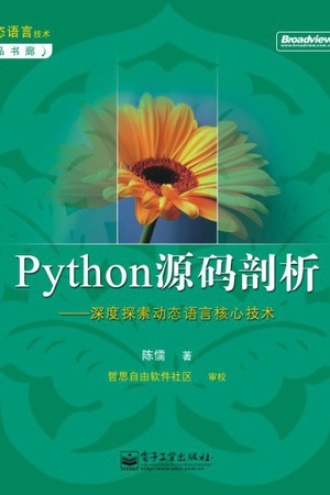作者:
Martin Reddy
出版社: Morgan Kaufmann
出版年: 2011-2-18
页数: 472
定价: USD 59.95
装帧: Paperback
ISBN: 9780123850034
出版社: Morgan Kaufmann
出版年: 2011-2-18
页数: 472
定价: USD 59.95
装帧: Paperback
ISBN: 9780123850034
这本书的其他版本 · · · · · · ( 全部3 )
以下书单推荐 · · · · · · ( 全部 )
- 编程实践 (Rover)
- C++: 實踐 (Milo)
- c++ (继续发育)
- 2012九月阅读书目 (W·思维印记)
- T (dhcn)
谁读这本书? · · · · · ·
二手市场
· · · · · ·
- 在豆瓣转让 有478人想读,手里有一本闲着?
订阅关于API Design for C++的评论:
feed: rss 2.0



















0 有用 Locke 2013-01-28 10:14:52
粗略翻了下,主要介绍了C++下的常见模式和封装
0 有用 pi1ot 2016-02-06 14:52:58
寡淡无味大杂烩,居然还有一章设计模式
0 有用 小学生 2012-11-20 02:53:58
越读地多, 体会越深。
0 有用 PigPig 2013-10-22 11:45:03
略读了,但是我不写API....以后用写API的时候再好好看看吧
0 有用 ? 2013-11-08 12:30:02
总的来说还行,但是整体感觉很鸡肋,方方面面都有,但好像都没什么内容,所以感觉收获不大……
0 有用 Galois 2019-10-11 00:02:42
全面,未免泛泛而谈,而且一些内容已过时。
0 有用 死亡的飞翔 2019-04-12 16:44:30
讲的主题太多,但每个主题都只浅尝则止,大多数东西都已经有所了解,没有太多新的收获。
0 有用 Gearslogy 2017-12-31 22:42:45
这本书竟然写的这么好。。。。。。
1 有用 oyquan 2016-12-24 19:52:16
如果已经读过Effective C++、Exceptional C++等经典C++书籍,了解常用设计模式,那么你不会从这本书中读到太多你没见过的关于API设计的建议。 本书的最大优点是,对C++ API设计的最佳实践进行了总结,而且内容组织得很好,方便查阅,可以当做参考书使用。 为什么大家对它的评价不高呢?
1 有用 夏日晴空 2016-03-03 23:23:09
里面的设计模式例子非常好